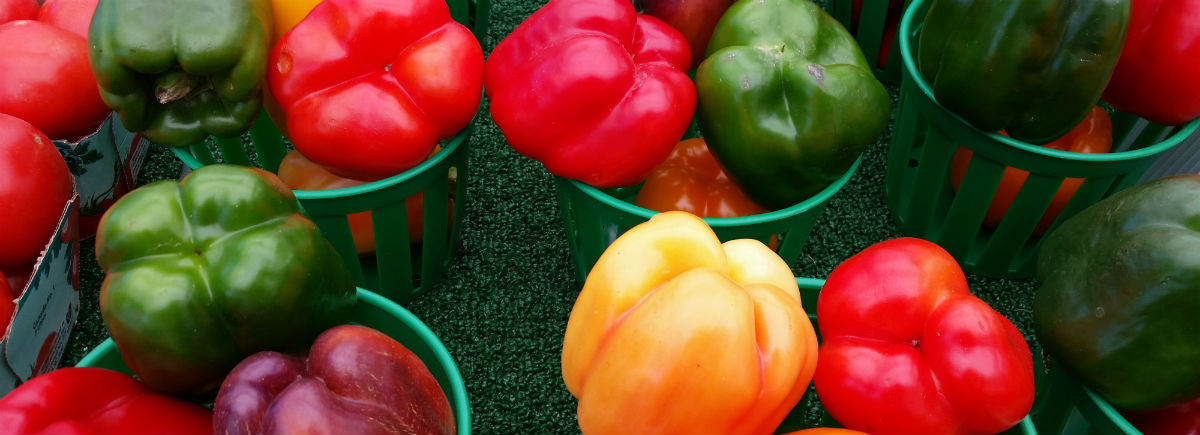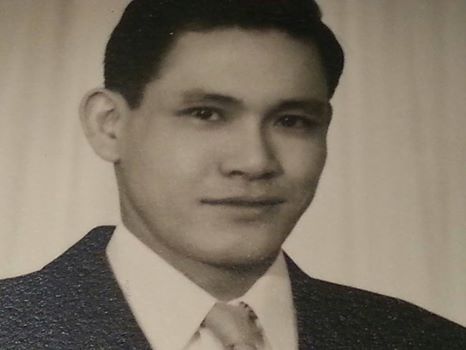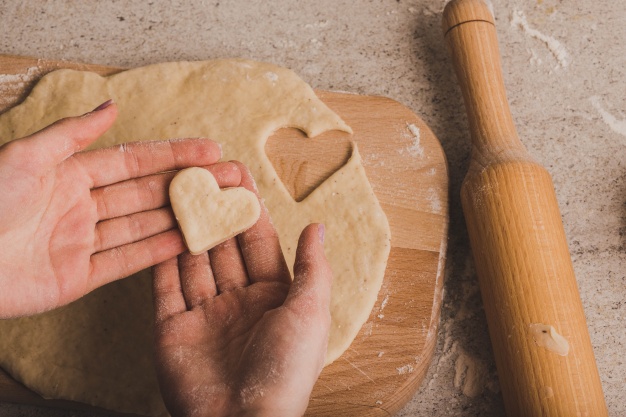
Why do we eat quickly? Often on the way to somewhere or while doing something else.
One of the earliest memories I have is riding my green tricycle. I went to the corner store with some pennies. I loved looking at all the candy options before me in a variety of boxes and bags at the front counter. It was one of my favourite places when I was a young girl. I chose a large colourful gummy alligator.
I got back on the tricycle, holding the handle bar with one hand, the other tightly gripped around the gummy alligator, which I was determined to eat as slowly as possible to make it last, as I rode around.
Time seemed to stand still when I savoured that alligator. That’s how it became a taste memory.
I don’t have many happy childhood memories, growing up in a turbulent household, but that moment is strong, clear and joyful. And that’s why I clutch on to it dearly like I did the candy alligator.
When I get caught up with the stressful pace of life these days, I sometimes remember that time on the tricycle. I pause to land in the present moment and savour what I am eating in particular. I want to store this taste memory under “happy” with the tricycle one.
♠
Why do we eat quickly?
It could be cultural and part of the family norm.
In our Japanese-Canadian family, my dad ate very quickly as if in a rush to get somewhere though he often had nowhere to go. As soon as my mother put down the food on the dinner table that she had lovingly made all day we were there to devour it in minutes.
My dad would eagerly eat anything right from the stove, oven or microwave, the more it was boiling or sizzling the better. He was a sort of digestive fire walker, I’m sure often burning the roof of his mouth. I followed his lead and did. I still do.
When I went to Japan, I realized that eating things very hot and quickly is not unique to my dad, it is part of the Japanese culture. Take the ramen restaurant that is an efficient feeding machine.
A diner purchases a ticket in advance for the ramen, he/she enters the restaurant bowing slightly and hands the ticket to the server upon sitting. The ramen arrives quickly and the diner slurps the steaming hot noodles rapidly and loudly, another cultural norm. Leaving quickly, the diner bows slightly and expresses his/her thanks for the meal to the establishment, saying “gochiso sama deshita”, which means “it was quite the feast.”
My mom, on the other hand, would say she has a nekojita or cat’s tongue. In Japan, people unable to eat or drink really hot food are called nekojita because they are like cats who have very sensitive tongues.
She couldn’t eat things hot and preferred things lukewarm. And she ate slowly, so slowly that when we were all done and ready to leave the table, we often left her halfway through her meal, enjoying every bite slowly with her green tea, also warm, not hot.
Looking back, it was probably rude for us to leave quickly and not to appreciate the food that she had taken so long to prepare. And we used to make fun of her for eating so slowly.
I would say it’s “totemo oishii” or “very delicious” when I was eating what she had created. It was true because she was an amazing cook. She would smile and that seemed to make her happy enough for all her hard work.
The fact that she rarely used recipes is incredible in that all those flavour combinations and recipes were stored in her head and heart.
She transferred them to me, those same flavour combinations and recipes, and what makes something oishii (delicious), and we didn’t do it through a shared folder on Dropbox or through a USB flash drive.
Being with her in the kitchen, eating food that she would make with love and care, sharing food like sushi that we loved, developed my exceptional aji or taste that would serve me well as a chef serving guests with food with great aji that would touch their hearts
♠
If we slowed down our eating, would we slow down our lives?
I like the quiet breakfasts when I go on yoga and meditation retreats. It is recommended that we eat in silence and have no distractions like a book to read, a journal to write in, a cell phone that we are checking, or music that we are listening to.
What happens when we eat in silence without distractions?
You might be happy with the prospect of the calm and quiet that you have been yearning for a long time.
But then why do we feel unease and anxiety? Why is there so much noise in our head?
We are afraid that we will be bored. We are addicted to distractions and feel lost and lonely without them. We crave for something to fill up our space and thoughts. Give me a distraction and I want it now!
If you continue with the silence and focus on food you are eating, you begin to hear the sounds inside and outside your body. The spoon against the bowl as you grab the cereal and bring it to your mouth. The metallic feeling of the spoon in your mouth with the food. You can hear the food being chewed and it is so loud. The swallow seems deliberate.You can almost feel the food making its way through your digestive system.
The spoon against the bowl as you grab the cereal and bring it to your mouth. The metallic feeling of the spoon in your mouth with the food. You can hear the food being chewed and it is so loud. The swallow seems deliberate.You can almost feel the food making its way through your digestive system.
Then there are the subtleties of the flavours and different textures that you may not have noticed before. And this is not a special creation from a fine dining restaurant but your breakfast!
The world seems to slow down even for a few moments. There seems to be enough food. We savour each bite.
♥
What if you ate more mindfully without any distractions, starting with one meal a week? Why would you want to you may be thinking? Most people say they want to slow down their lives. This would be a good way to start.
It will feel awkward and different at first, anything new does.
This is just not another task on your endless list. This is one of primary importance. To feed and nourish ourselves like our mothers did when we were babies. What would have happened if our mothers had put our feeding at the bottom of the list and often neglected it because we are not important enough? This is what, sadly, we do to ourselves.
We are often in a rush to get somewhere. We try to multi task with so many things, including eating. We seldom give enough attention to the critical act of fueling and nourishing our bodies, myself included. They say we write to understand and learn. I am.
I believe when we make the feeding of ourselves special, we make ourselves special.
We feed the hunger in our souls to slow down and taste life one slow bite at a time.
Also published on Medium.






0 Comments